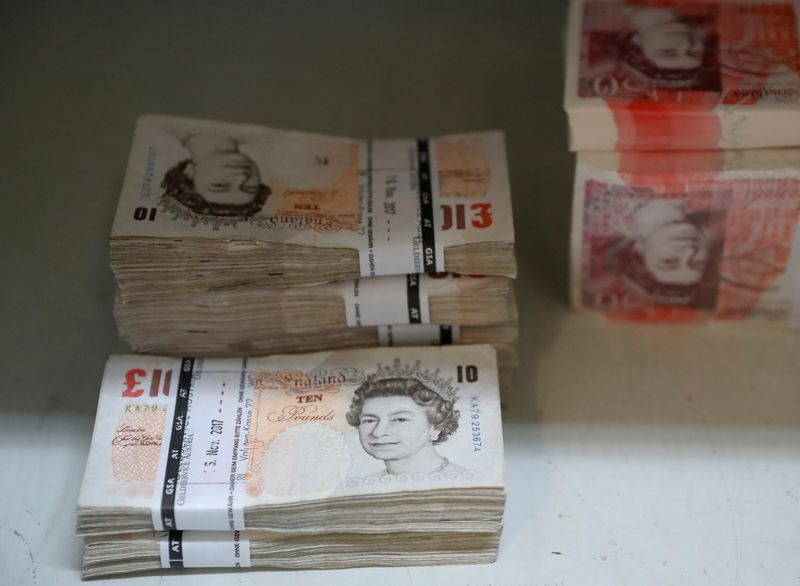LONDON (Reuters) – The pound was on course for its fifth weekly gain against the euro on Thursday after hitting a near two-year high against the single European currency, which was rocked by political uncertainty in France .
The euro fell to its lowest level against the pound this week since late August 2022, after the success of far-right parties in last weekend’s European Union parliamentary elections prompted French President Emmanuel Macron to call a snap vote in his country , which scared investors. .
The pound was already on the rise against the euro, which has already appreciated almost 2.5% so far this year, mainly based on expectations that UK interest rates will remain above those in the eurozone for some time to come.
On Thursday, sterling was stable against the dollar at $1.2798 and stable against the euro at 84.44 pence.
Data on Wednesday showing US inflation cooled faster than expected in May led to a sell-off in the dollar, sending sterling up 0.5%. The sell-off slowed after the US Federal Reserve released its forecasts for interest rates, growth and inflation.
On Thursday, the pound reacted little to the opposition Labor party’s manifesto, which was released ahead of the July 4 general election.
Data this week paints a fairly stagflationary picture for the UK economy, with wage growth still high, while economic growth came to a complete standstill in April.
Traders expect at least one rate cut from the Bank of England this year, but the jury is still out on whether or not there will be a second one.
The BoE will meet next week. Futures markets currently show traders have a 75% chance of a cut in September, with a cut for November fully priced in.
“Because market prices are already so aggressive, there is a risk of a greater market reaction if the BoE appears relatively unconcerned by the recent strong data. We continue to expect two cuts from the BoE this year, in August and November,” he said. Nomura economists led by George Buckley. in a note.

The pound is now steadily gaining ground. So far this year, it is the only major currency to be positive against the dollar, up 0.5%. The biggest competitor is the offshore sector, which has weakened by 2%.
On a trade-weighted basis, the pound is at its highest point since the Brexit referendum in June 2016.


